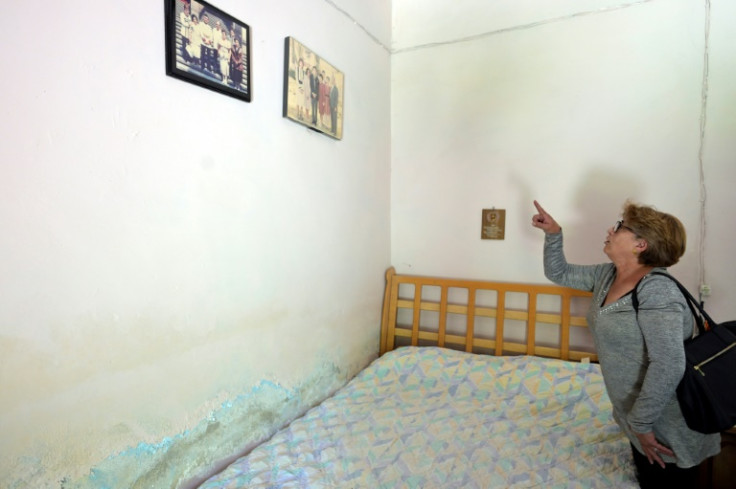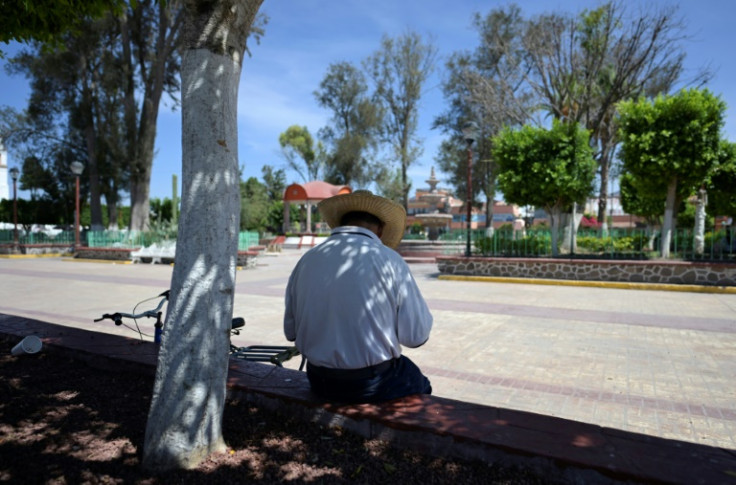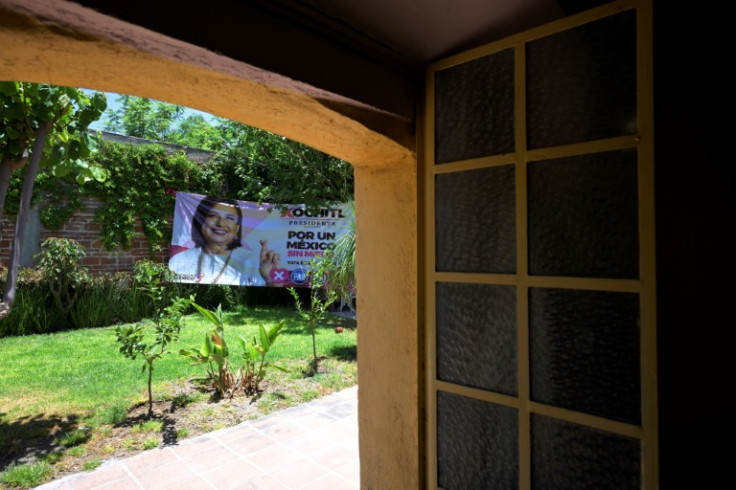
In the rural Mexican town where opposition presidential candidate Xochitl Galvez grew up, the smiling face of her ruling party rival looks out from posters plastered around the streets.
"No one is a prophet in their own land," as the saying goes, and that includes Galvez in Tepatepec, where not everyone is won over by her rags-to-riches story.
Decades have passed since the 61-year-old senator and self-made businesswoman of Indigenous roots moved away to study computer engineering.
At the time, her hometown in the central state of Hidalgo was mired in poverty.
Today, Galvez lives in Mexico City, where she is known for wearing Indigenous clothing, using colloquial language and traveling around by bicycle.
In Tepatepec, the image of her opponent, the frontrunner Claudia Sheinbaum, is a common sight on posters -- a reflection of the strong support that the ruling Morena party enjoys across much of Mexico.
Far from feeling proud of her, some of the town's residents are skeptical about the stories Galvez tells of her childhood, which include selling candy to help her family.
"When she says she had a tough upbringing, it's not true. It wasn't really like that," housewife Feliz Manso told AFP.
"There are many people around here who know her and hope she doesn't become president," the 76-year-old said at a tortilla shop on the outskirts of town.
In contrast, Ruben Angeles Santiago, a neighbor and friend of the Galvez family, believes she is the best person to lead Mexico.
"She's an honest, hard-working, straight-talking, well-prepared woman," the 65-year-old veterinarian said.
Santiago said he noticed a sharp contrast with a recent national meeting of farmers where many supported Galvez.
"But not here," he said.
After leaving Tepatepec, Galvez studied at the prestigious National Autonomous University of Mexico and went on to found a successful technology company.
In 2000, conservative president Vicente Fox entrusted her with policy for Indigenous peoples.
Now the opposition candidate hopes to become Mexico's first woman president after the June 2 election, though she is lagging well behind Sheinbaum in public opinion polls.
According to poll average compiled by the firm Oraculus, Sheinbaum has 55 percent of voter support, while Galvez has 33 percent.
Galvez, who formerly headed a foundation to support Indigenous children and women, has spoken openly of her family problems, including an alcoholic father.
Friends and relatives in Tepatepec say she comes home for important festivals, bringing toys for children.
Located in the Mezquital Valley, agriculture is a crucial source of income for Tepatepec, where many of the 11,000 inhabitants spend languid afternoons sheltering from the blazing sun.
Manso is sorry to see outgoing President Andres Manuel Lopez Obrador leave after one term -- the maximum allowed by the constitution.
She is grateful for her pension of about $77 a month.
Unlike Manso, plumber Jose Luis Ramirez considers Galvez to be "the best option," though he admitted that she is "not very popular" in her hometown.
"The problem is that people believe everything they hear. They don't think critically," said the 48-year-old, who divides his time between Tepatepec and Mexico City.
"They're going to vote for Morena because of all the money it gives them," Ramirez added.
Lopez Obrador's social welfare programs have featured prominently in the electoral debate.
His supporters accuse Galvez of wanting to reduce handouts, even though as a senator she voted for them.
At the start of the campaign, she vowed to maintain them -- signing the pledge with a fingerprint in her own blood.
Santiago said he knows people who will vote for Galvez but keep quiet about it because they fear their pensions being taken away.
He thinks her popularity in Tepatepec has improved after the televised presidential debates.
"Before I was sure that Sheinbaum would win. Now I'm not sure," he said.










